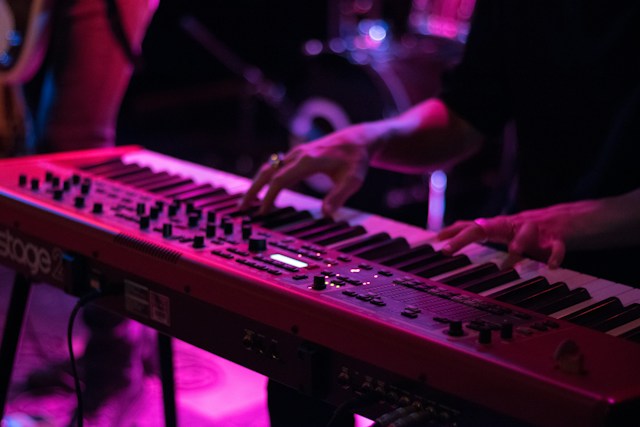Musical instruments have always been pivotal in shaping the soundscapes of different genres, and among them, one stands out for its remarkable adaptability. The electric keyboard, a dynamic and adaptable instrument, has significantly impacted various music genres. Its ability to mimic a wide range of sounds makes it a quintessential tool for musicians across the spectrum. This article delves into the unique roles it plays in different musical styles.
A Jazz Musician’s Best Friend
Jazz, known for its improvisational nature and complex chords, finds a perfect companion in the versatility of this instrument. With the ability to switch between a grand piano’s deep, resonant tones and the vibrant, punchy sounds of an electric organ or a synthesiser, jazz musicians use it to create rich, layered compositions. The ease with which one can transition between different sounds allows for the spontaneous creation that is the hallmark of jazz. Additionally, the instrument’s ability to replicate wind and brass instruments gives jazz ensembles greater flexibility in their arrangements. It has become a staple in small jazz clubs and large concert halls alike, underscoring its importance in this genre.
The Heartbeat of Pop Music
In pop music, it often takes centre stage, driving the melody forward. From the soft, subtle background notes to the catchy, upbeat hooks that define pop music, it demonstrates an incredible range. Pop artists leverage its ability to replicate various instruments and synthesise unique sounds, crafting memorable and chart-topping tunes. This instrument’s adaptability allows pop musicians to blend traditional and modern sounds, creating a bridge between different musical eras. It’s not uncommon to hear it emulate acoustic piano sounds, string sections, and even digital effects, all within a single pop song.
Rock and Roll Energy
Rock music, characterised by its energetic and bold sounds, also benefits from the dynamism of this instrument. It can mimic the electrifying sounds of a guitar, adding depth to the music. Rock bands often use it to add layers to their music, creating a fuller, more immersive sound. In many iconic rock songs, it provides a powerful undercurrent, complementing the aggressive guitar riffs and robust drum beats. The instrument’s versatility in producing both melodic and rhythmic patterns makes it an integral part of the rock genre, from classic rock anthems to contemporary alternative tracks.
The Classical Touch
Even in classical music, where traditional instruments dominate, the electric keyboard finds its place. It can imitate the sounds of a full orchestra, allowing musicians to experiment with compositions in a more accessible and cost-effective manner. Its precision and range make it an invaluable tool for classical musicians who wish to explore new arrangements and sounds. It offers a practical solution for solo performers to emulate the grandeur of an orchestra, making classical music more accessible to a wider audience.
Influence in Electronic Music
In electronic music, this instrument is indispensable. It’s at the forefront of creating the futuristic, synthesised sounds that define this genre. From ambient soundscapes to pulsating beats, electronic musicians rely on its vast array of sounds and effects to push the boundaries of what music can be. The instrument’s capacity for sound manipulation and creation is particularly valued in electronic music, where unique and evolving sounds are paramount. Its influence extends to live performances, where electronic musicians use it to blend pre-recorded tracks with live improvisation, offering audiences a dynamic and engaging experience.
In conclusion, the electric keyboard’s influence across different music genres is undeniable. Its flexibility and range make it a favourite among musicians, enabling them to express their creativity in limitless ways. By embracing its potential, artists continue to innovate and enrich music. Whether in a jazz ensemble, a pop hit, a rock anthem, a classical masterpiece, or an electronic experiment, it plays a pivotal role in shaping the sounds and experiences of music lovers around the world.

0 Comments